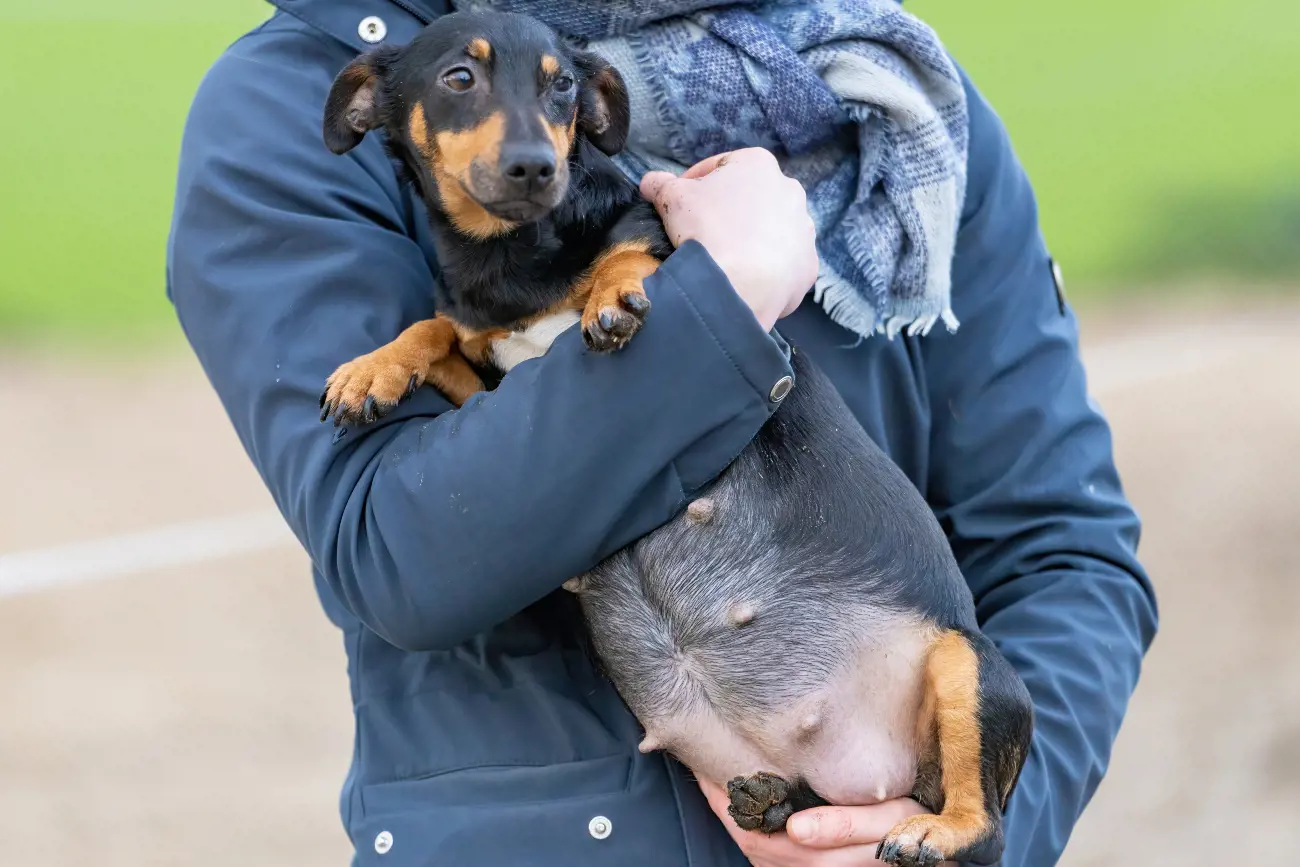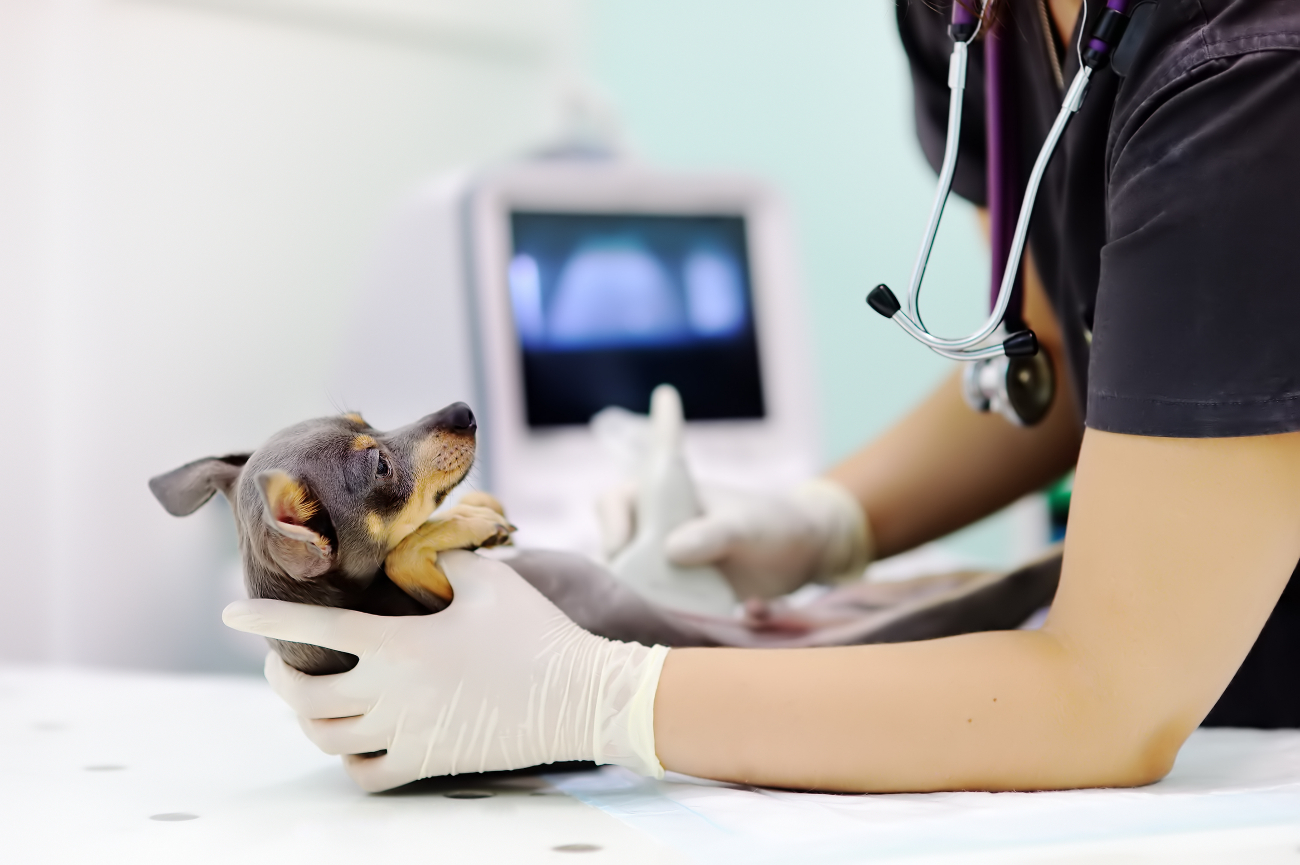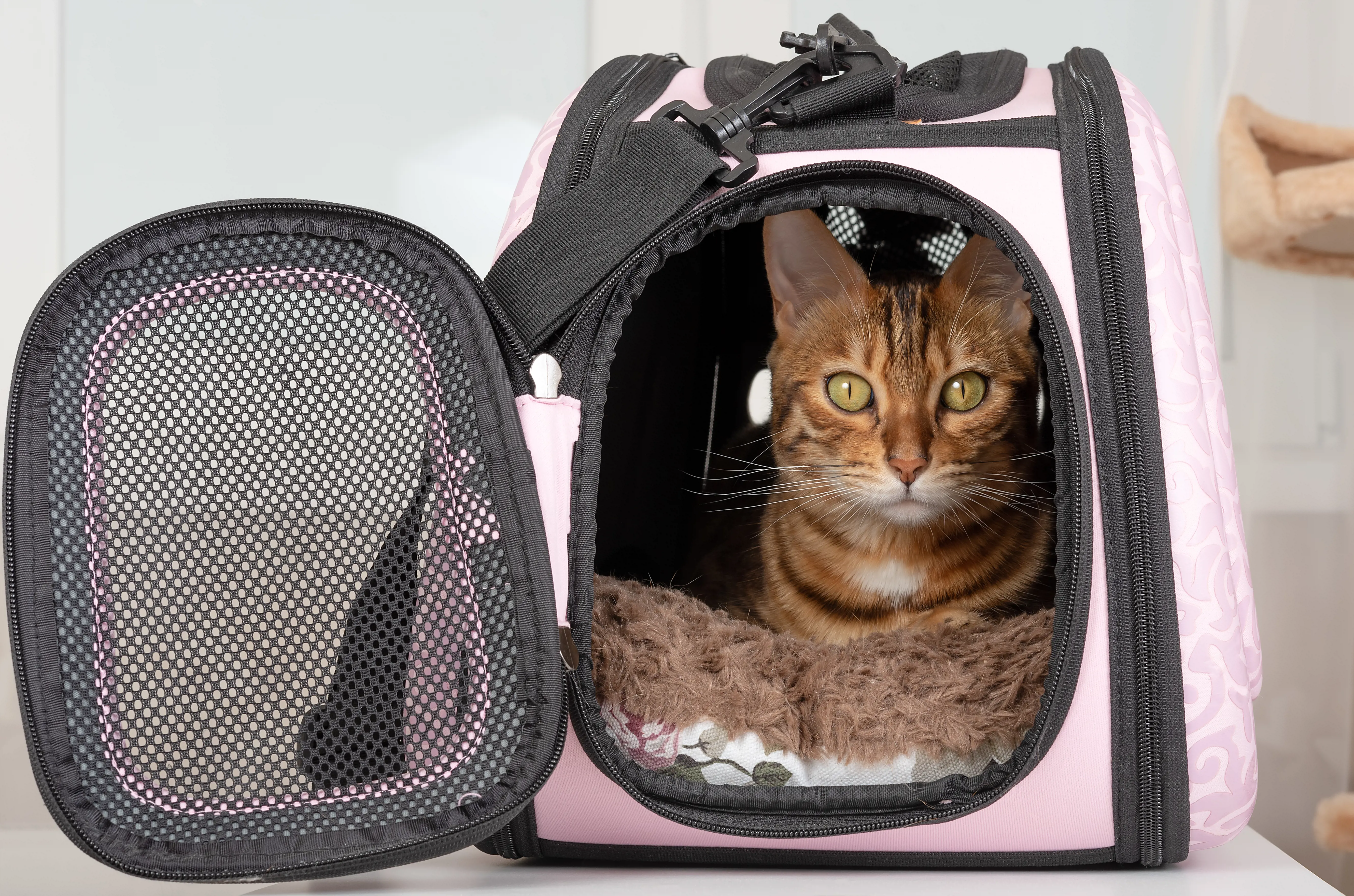How do I know if my dog is pregnant? Recognising early signs of canine pregnancy
10th September, 2024

Understanding the gestation period
Before diving into the indications of a pregnant dog, it's essential to understand a dog's gestation period. Dogs are usually pregnant for about 62-64 days, which is roughly two months.
However, predicting the exact timing of the delivery can be quite tricky because the breeding date doesn't always match the conception date. Moreover, the duration of pregnancy can fluctuate depending on the breed and litter size.
Behavioural changes: The first indicator
One of the earliest pregnancy signs is a change in behaviour. If your typically energetic dog starts to exhibit signs of fatigue or spends more time napping, it could be an indication of pregnancy.
However, remember that every dog reacts differently to pregnancy, so if your pregnant dog doesn't show specific behavioural signs, that's okay—she's simply handling being pregnant in her unique way.
How long after mating can you tell a dog is pregnant?
Determining the gestation period for dogs can be a complex process due to the variability in ovulation timing. It is even more so hard to determine how long a dog is pregnant for.
However, on average, you can usually tell if a dog is pregnant approximately two to four weeks after mating. This is typically the period when physical and behavioural changes become more noticeable.
Some of the early signs of pregnancy in dogs include changes in appetite, increased nipple size, and more frequent urination.
Appetite fluctuations: A tell-tale sign of pregnancy
Another common manifestation of pregnancy in dogs is changes in appetite. A pregnant dog's appetite may fluctuate in different ways, depending on the stage of her pregnancy.
In the early stages or midway into the pregnancy, she may eat less or occasionally vomit, resembling the "morning sickness" experienced by humans. On the other hand, as her pregnancy progresses, she may exhibit an increased appetite, given the nutritional needs of her growing puppies.
Nipple changes: An early sign of pregnancy
Another early sign of dog pregnancy is a change in the nipples. Around two to three weeks after mating, the dog's nipples may appear more prominent, pinker, and more pronounced, especially those nearest to the dog's hind legs. This change, known as "pinking up," is generally due to increased blood flow caused by pregnancy-related hormone release.
Weight gain and enlarged abdomen: A visible sign of pregnancy
Around day 35 of the pregnancy, you may notice your dog starting to gain weight. As the puppies grow, your dog's abdomen will begin to expand.
This weight gain and belly growth are completely normal—your dog is making more room for her puppies! By the end of the pregnancy, the puppies will be easier to feel, providing a more visible sign of pregnancy.
Nesting behaviours: Preparing for puppies
During the final weeks of pregnancy, your dog may exhibit nesting behaviours. She might start shredding bedding or other available materials to create a warm, comfortable place for her soon-to-be-born puppies. If your dog starts to display these behaviours, it is likely she is about to give birth.
Decreased activity: A sign of pregnancy fatigue
As the pregnancy progresses, your dog may become less active. This decrease in activity is a common sign that your dog is pregnant. Pregnant dogs can tire more easily, especially as their belly grows. They may also appear less interested in activities they usually enjoy.
Unusual behaviour: A pregnancy-related change
Pregnancy can also cause unusual behaviour in your dog. She may seek comfort more often or, conversely, may seek isolation and not want to be bothered. She may even appear depressed or irritable when given attention. These changes in behaviour can usually indicate that your dog is pregnant.
Veterinary testing: Confirming pregnancy
If you suspect that your dog is pregnant based on the signs mentioned above, it's time to visit your vet. Your vet can confirm a pregnancy through a dog pregnancy test, which measures hormone levels from days 21-25 of the term, or by an ultrasound from day 20-22.
If your vet confirms your dog's pregnancy by using this hormone test, they'll also perform a physical examination of your dog for any potential issues that could prevent her from having a healthy litter.
Will a human pregnancy test work on a dog?
The question, "Will a human pregnancy test work on a dog?" is quite intriguing and might occur to pet owners. However, the simple answer is no.
Human pregnancy tests are specifically designed to detect the presence of Human Chorionic Gonadotropin (hCG), a hormone produced by the placenta after implantation of the fertilised egg in the uterus. Dogs do not produce hCG; therefore, a human pregnancy test would not yield reliable results if used on a dog.
Veterinarians have specific tests designed to detect dog pregnancy. These tests typically measure the presence of Relaxin, a hormone that is only released during pregnancy in dogs. If you suspect your dog might be pregnant, it's advisable to consult with a veterinary professional for accurate testing and a prenatal checkup.
Post-pregnancy care: Preparing for puppies
Once your dog's pregnancy is confirmed, it's crucial to take steps to ensure she stays healthy throughout her pregnancy and beyond. Proper nutrition, regular vet visits, and preparing a comfortable space for her to give birth are all essential aspects of post-pregnancy care.
What to do when your dog is giving birth?
- Preparation: Before your dog gives birth, ensure you have a comfortable and quiet space for her to do so. This should be an area where she feels safe and secure. For example, providing a whelping box lined with clean, soft bedding can be a good option.
- Monitor temperature: A drop in body temperature often signals the start of labour. Regularly check your dog's temperature, which should normally be between 38 and 39 degrees. A drop to around 36 or 37 degrees means labour may begin within 24 hours.
- Recognise the following signs: A pregnant dog may show signs of restlessness, nesting behaviour, loss of appetite, and possibly even vomiting. Keep a close eye on your pet to ensure you're aware when labour starts.
- Labour stages: There are two main stages of labour. The first involves uterine contractions and the second involves the expulsion of puppies. It's important to know the signs of each stage to ensure the birthing process is going smoothly.
- Help with delivery: Dogs typically manage birth themselves, but there may be times when you need to step in. If a puppy is stuck, you may need to gently pull them out (always pulling straight, never twisting) at the same time as your dog is pushing. For example you could wear disposable gloves to help maintain hygiene during this process.
- Post-birth care: After each puppy is born, your dog should clean the puppies by licking them and eating the placenta. This stimulates their breathing. If she doesn't do this, you may need to rub the puppy gently with a clean, warm towel to stimulate them.
- Keep track: Keep a record of how many puppies are born and how many placentas are passed. There should be one placenta for each puppy. If one is missing, your dog could be at risk of infection.
- Veterinary assistance: Be prepared to seek veterinary help if there are any signs of distress, such as strong contractions lasting more than 45 minutes without a puppy being born, or if your dog seems weak or very distressed.
- Feeding and weaning: After birth, the puppies will need to nurse frequently
Health signs to watch out for after your dog has given birth
- Decreased appetite: After giving birth, your dog should regain her appetite gradually. If she shows a lack of interest in her food for more than a day, it could be a sign of complications like infection or postpartum depression.
- Unusual discharge: A small amount of bloody discharge is normal for a few weeks after birth. However, watch out for large amounts of blood, pus, foul-smelling discharge, or a green or black discharge. These can indicate infections or retained placenta.
- Fever: A high temperature is a common sign of infection. If your dog's temperature is consistently above 39.7°C, it's time to call the vet.
- Lethargy or depression: It's normal for a new mother dog to be a bit tired, but excessive sleepiness, lack of interest in her puppies, or signs of depression could indicate a problem.
- Mastitis: If your dog's mammary glands are hard, swollen, or painful, she may have mastitis, an infection of the mammary glands. Other signs include a fever and general malaise.
- Eclampsia: Also known as milk fever, signs include panting, restlessness, muscle tremors, and inability to stand or walk. This is a veterinary emergency and requires immediate attention.
- Abnormal behaviour towards puppies: A mother dog ignoring her newborn puppies, not allowing them to nurse, or showing aggressive behaviour towards them can be a sign of problems, either physical or psychological.
- Persistent vomiting or diarrhoea: Occasional vomiting or diarrhoea can be normal due to hormonal changes, but if it persists, it could be a sign of a more serious problem.
- Swollen abdomen or pain: If your dog is showing signs of pain or has a swollen abdomen, she could have a retained placenta or a uterine infection.
- Difficulty breathing or excessive panting: While some panting is normal after giving birth, if your dog is having difficulty breathing or is panting excessively, it could signal a heart problem or a fever.
Conclusion

Recognising the signs of dog pregnancy can help you provide the necessary care for your dog during this significant time in her life. If you believe your dog is pregnant based on the signs discussed in this guide, reach out to your vet for confirmation.
And remember, your responsibilities have only just begun. Raising newborn puppies—ensuring they are healthy, well-socialised, and placed into loving forever homes—is a big, important job.
To get a dog insurance quote* for your furry friend, you can get a quote through our website. If you would like to talk to one of our dog insurance team, you can get in touch with us on 0330 102 5748.
* Please be aware that pets used for commercial breeding are excluded from cover. Our insurance policies will consider any pet that has had more than 2 litters in their lifetime as commercial breeding and as such will be unable to provide cover.
Helpful Pages
Recent Posts
Pet Insurance Quote
- 98% claims paid *
- Claims paid directly to vets
- 24/7 vet video consultations
- Interest free monthly payments




